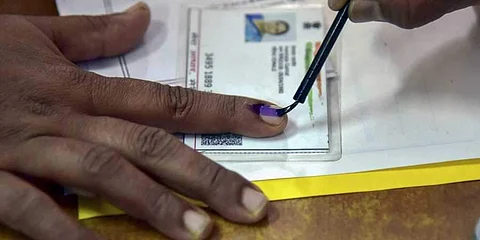

What is 'One Nation, One Election'?
‘One Nation, One Election’ (ONOE) is a proposal to synchronise elections for the Lok Sabha and state legislative assemblies across India. This means voters nationwide would cast their ballots for both national and state representatives on the same day.
This practice was the norm until 1967, after which staggered elections became the norm due to premature dissolutions of governments.
Why is it being discussed now?
On December 12, the Union Cabinet approved a bill on ONOE, marking a significant step toward synchronising national and state elections. The government plans to introduce this proposal during Parliament’s Winter Session, highlighting it as a strategy to streamline the electoral process and minimise the economic and administrative challenges posed by frequent elections.
What are its advantages?
Supporters of ONOE highlight several benefits:
Cost efficiency: Conducting a single election nationwide significantly reduces the recurring expenses involved in organising multiple elections, such as transportation, manpower, and infrastructure.
Administrative ease: Resources like polling staff and security forces can be utilised more efficiently, focusing their efforts during a single election period rather than being stretched over several staggered phases.
Governance stability: Frequent elections often bring governance to a standstill due to the Model Code of Conduct (MCC). By minimising the number of elections, ONOE reduces the disruptions caused by these temporary restrictions, allowing uninterrupted implementation of policies.
The MCC is a set of guidelines issued by the Election Commission of India for political parties and candidates during elections. It is aimed at ensuring free and fair elections by regulating campaign activities, preventing misuse of government resources, and maintaining decorum in public discourse.
What are the challenges?
Implementing ONOE involves significant hurdles:
Constitutional changes: Aligning election cycles demands amendments to multiple articles of the Constitution, including those governing the terms of legislatures and election timing.
Federal concerns: Critics argue that synchronised elections may dilute regional priorities, as state-specific issues might get overshadowed by national campaigns, potentially undermining federalism.
Logistical complexity: Adjusting terms of existing assemblies and managing early dissolutions or extensions would require intricate planning, coordination, and legal adjustments to avoid governance gaps.
Why should students care?
ONOE represents a major shift in how elections are conducted, and changes that could influence governance for decades. Understanding ONOE equips students with knowledge of the electoral process, which is essential for an informed democratic society.
As the future electorate, students have a stake in how these reforms shape their future as citizens and the beneficiaries of government policies. Synchronised elections could reduce disruptions to academic schedules caused by frequent polling, ensuring a more consistent academic calendar.
Cost savings might be redirected to improve educational infrastructure and resources, while heightened civic engagement could inspire students to actively participate in discussions about governance.
On the other hand, ONOE poses potential challenges for students that warrant careful consideration. Local educational issues could be overshadowed by broader national agendas, and fixed electoral cycles might delay responses to urgent concerns.
Additionally, the heightened focus on elections could distract from academics if schools and colleges prioritise election-related activities. These potential trade-offs highlight the importance of a balanced approach to ONOE to ensure students' interests are safeguarded.
